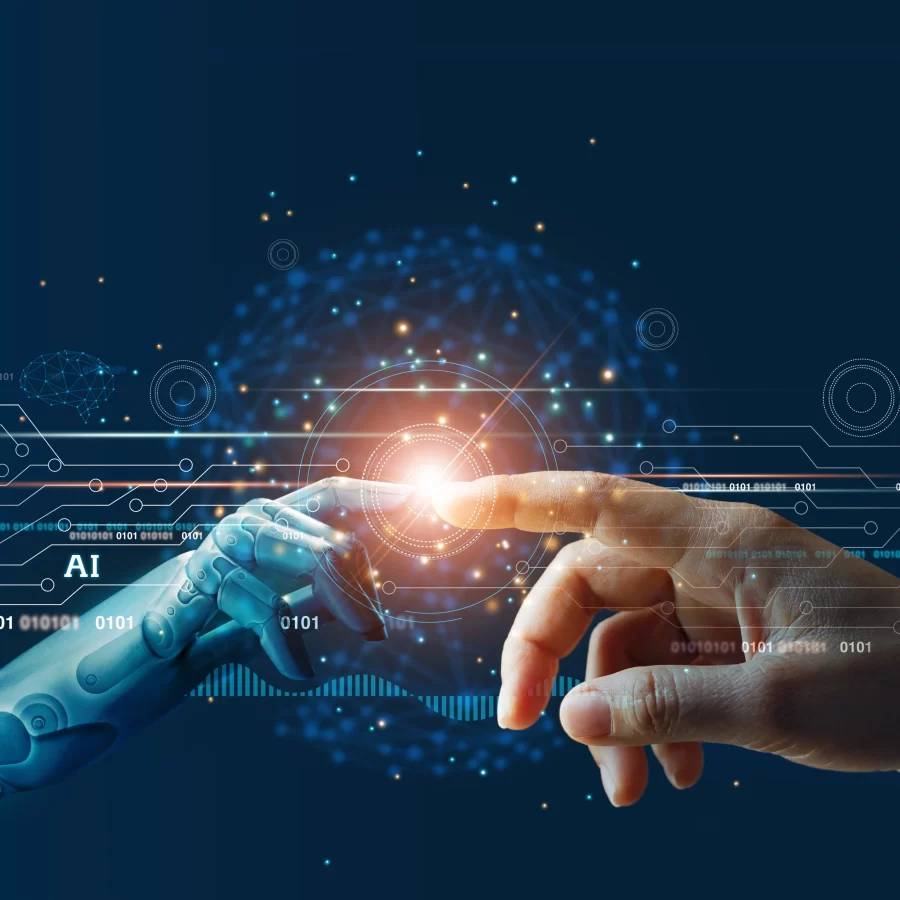ChatGPT and the Ethics of AI
The AI takeover is here, but it’s not what you expected
February 5, 2023
Say you’re asked to envision the look of complex artificial intelligence. What’s the first thing that comes to mind? Maybe it’s Terminator-esque machinery, destined to destroy the world as we know it. Or perhaps it’s the milder, yet equally uncanny Sophia AI, pioneering the future of cognitive engineering.
Contrary to the opinions of some roboticists (and American pop culture), the greatest threat to humanity currently comes in the form of a conversational chatbot, eager to complete your essays and beat you in a virtual game of chess.
Meet ChatGPT: your future student, teacher, computer scientist, and lawyer. And despite public hysteria, media sensationalism, and all around misinformation, aspects of the prognosis are decidedly grim. The natural language processing tool launched by OpenAI in late November of 2022 has taken the world by storm, largely due to its seemingly limitless capabilities. Discussion of ChatGPT first made its rounds within academia circles, where professors and other educators voiced their concerns about the chatbot’s ability to respond to any given prompt with humanly imperfection. Fear of the AI’s articulate yet colloquial responses created such an uproar that only two months after release, ChatGPT was banned from all devices connected to networks belonging to New York City public schools. Although representatives from the San Francisco-based startup addressed concerns of potential plagiarism and presented work-in-progress mitigation efforts, their words fell on deaf ears. It was too little, too late.
But that was only the beginning.
Then came the software engineers, who took quick note of ChatGPT’s ability to produce suitable code. While the average output frequently contains errors and outdated commands, the results of asking ChatGPT to program — ranging from a few lines of code to an entire application — are undoubtedly impressive, surpassing the complexity of responses from similar AI tools. That being said, the shortcomings of the program with regards to programming means that multi-talented developers won’t find themselves out of a job so easily.
ChatGPT even had business professionals sweating over the past few weeks as news rang out about the AI’s above average performance on a Wharton MBA course exam. Christian Terwiesch, a professor at the esteemed Wharton School of business at the University of Pennsylvania, gauged the quality of chatbot’s responses to questions on the Operations Management Course exam, on which he deemed it deserving of a B or B-. ChatGPT could provide accurate responses with detailed explanations, he claimed, but struggled surprisingly with relatively simple calculations. Nevertheless, Terwiesch believes that the AI has academic prowess that will have important implications for the business school curriculum and academia as a whole.
The Bright Side
No, ChatGPT isn’t the human-hating machine straight out of a horror sci-fi film, but as previously mentioned, it is an incredibly powerful tool with the ability to change the way we approach work and learning. Even so, it appears that the AI won’t go entirely unmatched. Although ChatGPT output manages to bypass most modern plagiarism checkers, outcry and uncertainty has inspired some to take matters into their own hands. A Princeton computer science student claims to have developed a software that can accurately detect ChatGPT-generated text, and developers of the established Turnitin system boast of the program’s advancements in AI writing recognition amidst growing concerns over the chatbot. OpenAI has since launched its own AI detection program, but its success rate is still low unless used in tandem with existing software.
On the other hand, many are adopting a more friendly approach towards ChatGPT. Rather than waste time busting students intent on not doing the work, some teachers and professors have publicly declared their support, ambivalence, or are otherwise actively implementing the AI lessons into their curriculum. Similarly, professionals across a variety of fields are looking for ways that ChatGPT could enhance their work experience, rather than destroy it.
Of course, overall opinions are mixed, but it seems that ChatGPT could do a lot more good than harm if properly addressed and utilized.
ChatGPT Shortcomings
As powerful as ChatGPT is (or may seem), it too is far from perfect. Bound by the current limitations of natural language processing, ChatGPT text output frequently contains errors ranging from clunky, repetitive sentences to outright misinformation. This often gives the AI the voice of an average 12th-grade writer, and since ChatGPT provides no sources for the information it uses within its writing, it’s often difficult to distinguish fact from fiction. As a point of reference, it appears that ChatGPT performs best when asked about topics predating 2022.
Perhaps more seriously, despite ChatGPT’s hesitance to present the user with inappropriate content, there are ways to bypass the chatbot’s inherent safety features. -, it is apparently not challenging to get the AI to produce responses promoting sexist and racist rhetoric, detailing how to perform criminal actions, or otherwise supporting unethical behavior. OpenAI claims it is actively updating ChatGPT’s software to make it less vulnerable to such exploitation.
The Outlook
All in all, our future with ChatGPT is unknown. Will we bend to the will of the AI, or will it answer to us? Amidst all this uncertainty, however, one thing remains clear: we haven’t entered the age of AI supremacy. At least, not yet…









